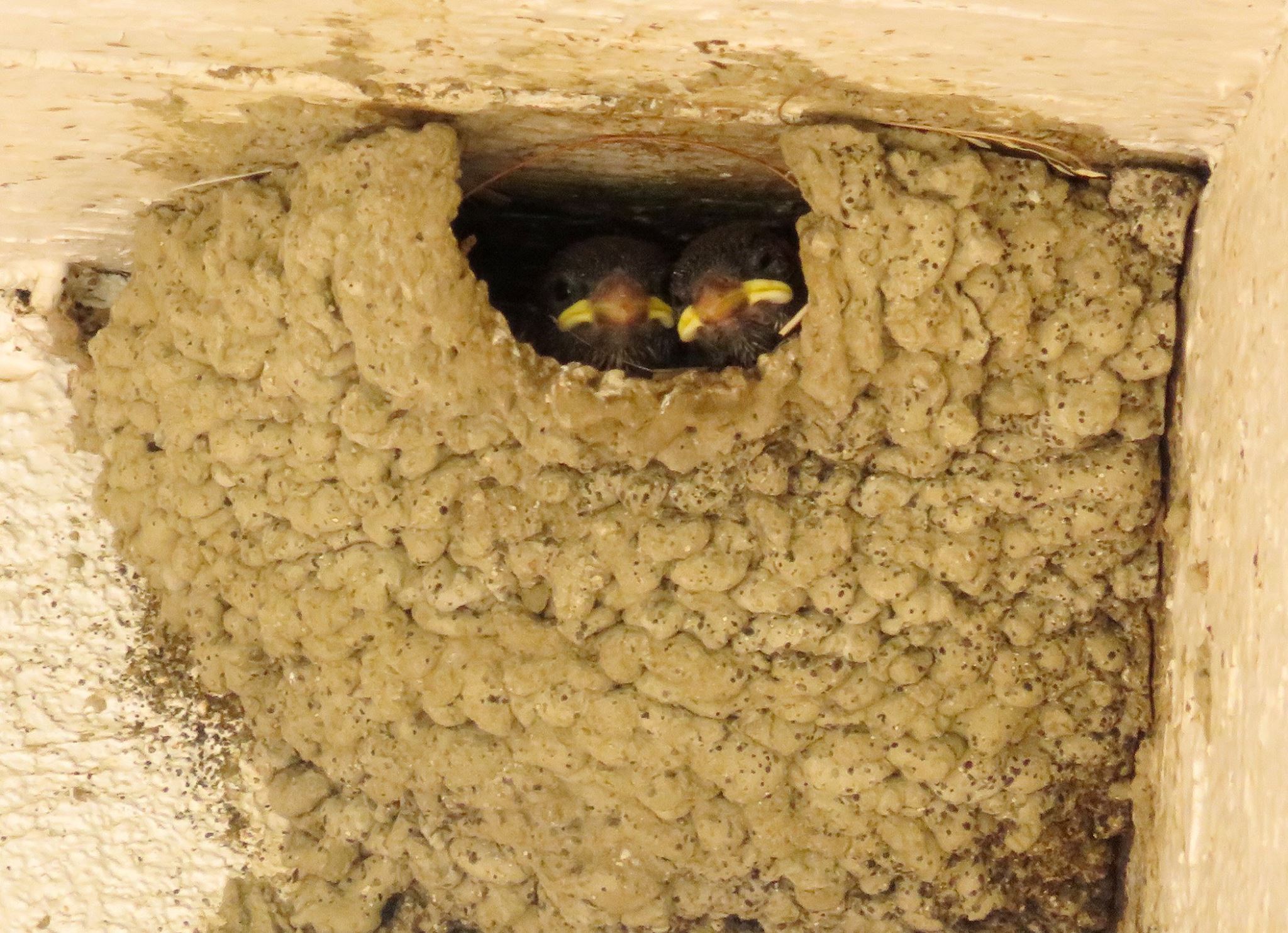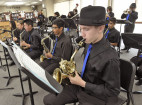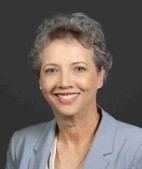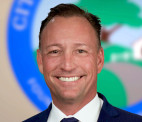 [Gov. Brown] – Committing to “pay down our debts and remember the lessons of history,” on Wednesday Gov. Edmund G. Brown Jr. delivered his annual State of the State address, highlighting California’s comeback while vowing to establish a solid rainy day fund to help maintain the state’s fiscal stability.
[Gov. Brown] – Committing to “pay down our debts and remember the lessons of history,” on Wednesday Gov. Edmund G. Brown Jr. delivered his annual State of the State address, highlighting California’s comeback while vowing to establish a solid rainy day fund to help maintain the state’s fiscal stability.
The governor also renewed his call for all Californians to conserve water, laid out the key elements of the state’s long-term water plan and noted the work ahead to fight climate change and build on historic reforms to the state’s school funding and criminal justice systems.
Edmund G. Brown Jr.
State of the State Address
Remarks as Prepared for Delivery
January 22, 2014
I am here today to report on the state of our state, choosing to ignore those who say that Article 5 of our Constitution, which requires the governor to report to the Legislature, is outdated; that you can’t report on the condition of our state from Sacramento because California is too spread out and too diverse. It occurred to me that these critics – who have long recited our state’s decline – perhaps have nothing to say in the face of California’s comeback – except, “please, don’t report it.” Well, I’m going to report it, and what a comeback it is: A million new jobs since 2010, a budgetary surplus in the billions and a minimum wage rising to $10 an hour!
This year, Californians have a lot to be proud of. For a decade, budget instability was the order of the day. A lethal combination of national recessions, improvident tax cuts and too much spending created a financial sink hole that defied every effort to climb out. But three years later, here we are – with state spending and revenues solidly balanced, and more to come.
For that, I thank all of you – for your courageous and dedicated legislative work. It is truly impressive. I also want to thank the members of my administration who have worked so hard to help make all this happen. But above all else, I think we should thank the voters of California. In 2010, through Proposition 25, they established a majority vote for passage of the state budget. That ended the gridlock. Then, in 2012, they approved the temporary tax increases of Proposition 30. These two initiatives, together with the recovering economy and the tough decisions you took, made all the difference.
But we are not out of the woods and we certainly are not out of the drought. Life is uncertainty, the climate is changing – not for the better – and the business cycle and the stock market are historically volatile, with good years followed by bad, with painful regularity.
And while we know our revenues will fluctuate up and down, our long-term liabilities are enormous and ever growing. Let me list some of them: Over $100 billion for pensions owed to state workers, teachers and judges; tens of billions needed to cover retiree health care; and $65 billion needed to maintain and keep our roads, buildings and other infrastructure in sound repair. We also must account for future risks that could negatively affect our budgets like congressional decisions, natural disasters and the uncertain costs of the Affordable Care Act.
So we can’t go back to “business as usual.” Boom and bust is our lot and we must follow the ancient advice, recounted in the Book of Genesis, that Joseph gave to the Pharaoh: Put away your surplus during the years of great plenty so you will be ready for the lean years which are sure to follow.
Most governors and legislatures – in modern times – have forgotten this advice. This time we won’t do that. We will pay down our debts and remember the lessons of history. The American philosopher, George Santayana, famously said: “Those who cannot remember the past are condemned to repeat it.” To help us keep our fiscal realities in mind, I have some playing cards with a chart from this year’s budget summary that shows our last 15 budgets. It’s not pretty. So I decided to put a picture of Sutter on the other side to keep our spirits up. It will make you smile but also help us not forget.
Fiscal discipline is not the enemy of our democracy but its fundamental predicate. To avoid the mistakes of the past we must spend with great prudence and we must establish a solid rainy day fund, locked into the Constitution.
In 2004, the people voted for a rainy day fund which was found to be unworkable. In 2010, you created another rainy day fund, now scheduled for the November Election. But this latest effort doesn’t give the state the option to pay off debt, doesn’t deal with the ups and downs of Proposition 98 and doesn’t account for spikes in capital gains. So let’s fix these flaws before going to the voters. This is work that must be accomplished in the next few months.
Last year, I spoke of the principle of subsidiarity, a rather clunky word that nevertheless points to a profoundly important principle, namely that in our federal system there are separate layers of government, each with its own distinct responsibilities. The Oxford English Dictionary defines subsidiarity as the idea that a “central authority should have a subsidiary function, performing only those tasks which cannot be performed effectively at a more immediate or local level.”
No better example of this can be found than in your enactment last year of the Local Control Funding Formula. This was a major breakthrough in the way funds are allocated to California’s schools so that our laws explicitly recognize the difficult problems faced by low-income families and those whose first language is other than English. As a result, those with less are going to receive more and that is good for all of us.
But something else is at work in this Local Control Funding Formula. Instead of prescriptive commands issued from headquarters here in Sacramento, more general goals have been established for each local school to attain, each in its own way. This puts the responsibility where it has to be: In the classroom and at the local district. With six million students, there is no way the state can micromanage teaching and learning in all the schools from El Centro to Eureka – and we should not even try!
Last week, 324 people from across the state traveled to Sacramento to speak to the State Board of Education about the merits of this new law and the regulations which should be adopted under it. Principals, teachers, students, parents, religious groups and lawyers, all came forward to express their views. Now that shows interest and real commitment! But their work is just beginning. Each local district now has to put into practice what the Local Control Funding Formula has made possible. That, together with new Common Core standards for math and English, will be a major challenge for teachers and local administrators. But they are the ones who can make it work and I have every confidence they will.
In a similar vein, in the field of public safety, we have changed historic practices in our prison system and transferred significant responsibilities to local authorities. The Federal courts, backed up by the United States Supreme Court, have ordered major reductions in our prison population and dramatic improvements in the medical and mental health programs that the state makes available. In response, we have transferred the supervision of tens of thousands of lower level offenders from the state to our 58 counties. This realignment is bold and far reaching, but necessary under the circumstances. And local law enforcement has risen to the occasion.
Our prisons are pioneering new programs and treatments – and so are the counties. Last week, I visited the Lerdo Jail just north of Bakersfield and sat in on some classes. It was moving to hear the men’s stories and the struggles they encounter. It was also inspiring to see the enthusiasm of Sheriff Donny Youngblood and his efforts under realignment to work with probation, the district attorney, local judges and the police to try new ways to deter crime and help offenders straighten out their lives.
Of course there are issues with realignment, but together – with our local partners – we are facing them. We have plenty of work ahead of us, including building more capacity at the state and county level and becoming more effective with those who suffer mental illness or who are drug addicted. But we are on the right track.
In all this, your legislative work – particularly funding – is crucial but we should never lose sight of the reality that life is local and that so many things we try to do here in the State Capitol can only be handled by local representatives and leaders. They deal not with the abstractions of law but with the flesh and blood reality of everyday life. That’s a lesson I learned firsthand as mayor of Oakland.
Among all our uncertainties, weather is one of the most basic. We can’t control it. We can only live with it, and now we have to live with a very serious drought of uncertain duration.
Right now, it is imperative that we do everything possible to mitigate the effects of the drought. I have convened an Interagency Drought Task Force and declared a State of Emergency. We need everyone in every part of the state to conserve water. We need regulators to rebalance water rules and enable voluntary transfers of water and we must prepare for forest fires. As the State Water Action Plan lays out, water recycling, expanded storage and serious groundwater management must all be part of the mix. So too must be investments in safe drinking water, particularly in disadvantaged communities. We also need wetlands and watershed restoration and further progress on the Bay Delta Conservation Plan.
It is a tall order.
But it is what we must do to get through this drought and prepare for the next.
We do not know how much our current problem derives from the build-up of heat-trapping gasses, but we can take this drought as a stark warning of things to come. The United Nations Panel on Climate Change says – with 95 percent confidence – that human beings are changing our climate. This means more droughts and more extreme weather events, and, in California, more forest fires and less snow pack.
As you know, of all the states, and even of most of the countries of the world, California is the leader in dealing with climate change. From AB 32, to our building and appliance efficiency standards, our renewable portfolio standard and our support of electric vehicles, California is leading the way. Nevertheless, in terms of greenhouse gases, our biggest challenge remains the amount of gasoline Californians use. Each year, our motor vehicles use more than 14 billion gallons of gasoline to travel over 330 billion miles. To put those numbers in perspective, the sun is 93 million miles away. Reducing our oil consumption, two thirds of which is imported by ships and tank cars, will take time, breakthrough technologies and steadfast commitment. It will also require that the countries which burn the most fossil fuel join with us. We’ve started building those partnerships with other states and countries like China. We will go to Mexico next. California can’t do this alone.
In so many other ways, California is a pioneer. We have 25 percent of the nation’s foreign born and we are the first state in modern times to have a plurality of families of Latino origin. So it’s not surprising that California is the state where immigrants can not only dream – they can drive.
We are also the state of innovation, of Silicon Valley and more venture capital investment than any other state – by far.
We’re on our way to a million electric vehicles and we’re building the nation’s only high-speed rail.
We’re expanding health care coverage to millions more. And, California is the nation’s leader in developing medical and scientific advances that will cure diseases and lower costs. We have six of America’s twelve top-performing metropolitan areas in biotechnology: San Diego, San Jose, San Francisco, Oakland, Los Angeles and Orange County. Last year, we created a tax credit to help innovators, in these regions and beyond, hire and expand in California. Four out of the world’s twenty leading academic bioscience institutions are located here in California: UCSF and Berkeley, UCLA, Stanford and UC San Diego. Just as California has led the way with stem cell research, so too can we pioneer the new field of precision medicine which uses genomics, medical devices, computer sciences and other fields to treat individual patients, instead of broad populations.
Yes, California is a leader in so many ways. But, the dangers and difficulties we face can never be taken lightly. We still have too many struggling families, too much debt, and too many unknowns when it comes to our climate. Overcoming these challenges will test our vision, our discipline and our ability to persevere. But overcome them we will and as we do, we will build for the future, not steal from it.
Like this:
Like Loading...
Related




 Tweet This
Tweet This Facebook
Facebook Digg This
Digg This Bookmark
Bookmark Stumble
Stumble RSS
RSS



























REAL NAMES ONLY: All posters must use their real individual or business name. This applies equally to Twitter account holders who use a nickname.
0 Comments
You can be the first one to leave a comment.